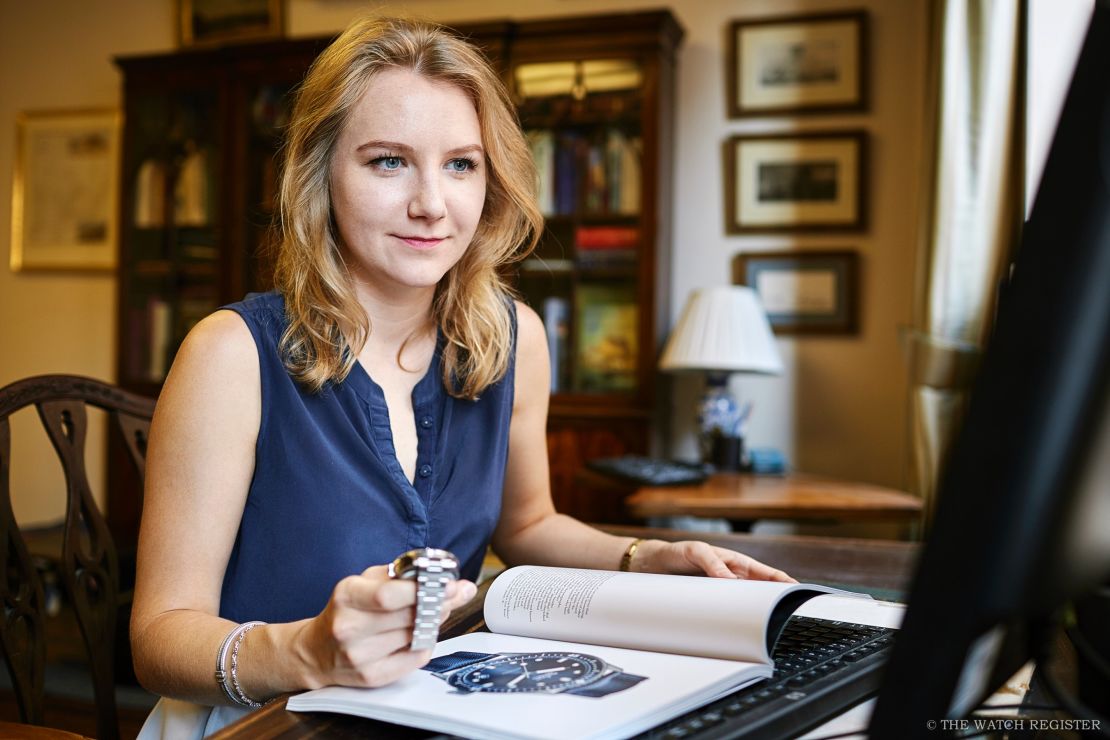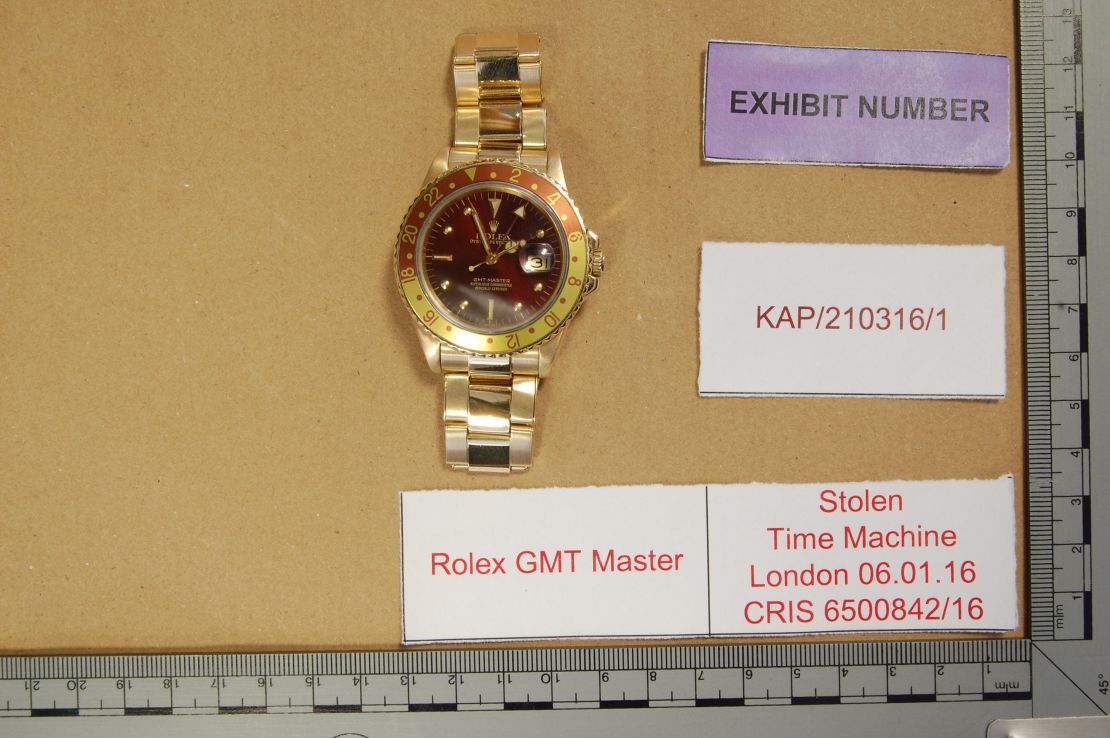It’s not a topic watch guys like to discuss when they swap tales at enthusiasts’ fairs like SalonQP or RedBar’s collector get-togethers, but every one of them knows someone who’s had a treasured piece stolen. Few collectors are dismissive of insurance policies and the need for a decent safe, but even so, watches are stolen from hotel rooms, gym lockers and other seemingly safe environments.
For both seasoned collectors and one-off purchasers buying second-hand, there is another risk: that their acquisition is one of those pilfered items. Unlike new, factory-fresh timepieces from authorized retailers with above-reproach legitimacy, pre-owned timepieces need provenance.
It’s no surprise that Watchfinder, the UK’s largest online vendor of pre-owned timepieces, has its stock checked through the Watch Register, one of the new breed of stolen watch tracking services.
A specialty service offered by the Art Loss Register (ALR), one of the world’s largest stolen art databases, the Watch Register was set up in 2014 to assist the police, retailers, auction houses and victims by identifying stolen items, provided the details have been fed into their system.
Today its database contains information on more than 50,000 stolen watches – data used to recover stolen watches, and reduce the level of theft by making it harder for thieves to sell stolen goods.
An international watchdog
Because of the rapid growth in both brick-and-mortar and online retailers of pre-owned watches, as well as the increase in auction sales, stolen watches are more easily disposed of than in the past – and even the most reputable and experienced of vendors need to exercise caution.
As Katya Hills, managing director of the Watch Register, explained, the small size, desirability and international appeal of watches combine to facilitate swift dispersal of stolen goods, far from the site of the theft.

“A dealer from Belgium in his first search with us was checking on a watch being offered from Turkey, and the theft happened in Austria,” she said. “That shows how much the watches circulate.”
As for the watch brands themselves assisting private individuals to recover watches, there is no uniform practice. Often, when watches come in for servicing, many companies will check the serial numbers against databases, but there’s a long way to go before the entire industry cooperates.
All you need to know about serious watches, from A-Z
“It’s something we’re really working on with the police at the moment, trying to get the manufacturers around a table and showing them the importance of doing this because people want to get their watches back. We’re doing this but it would be great if we could rely on the data they hold internally to assist victims,” Hills said.
“We offer a search service to the trade: we have experts in recovery and insurance, whereas watch brands make watches, so it’s understandable they wouldn’t necessarily want to get too deep into the recovery side of things.”
This author was reminded of the trade being remiss, when, some years ago, a friend received a visit from Interpol. They came to collect a watch he had purchased in auction the year before, from a reputable house. Luckily, he was reimbursed. Had the auction house checked the numbers more closely, the piece could have been withdrawn from the sale.
Police intervention
The Watch Register, works closely with the police, as well as with international law enforcement.
“We’re sort of halfway between the trade and the police,” says Hills. “If the British police want to liaise with the Italian police, they have to put in a formal request through Interpol. If they do it through our offices, it’s pretty much immediate.”
Search fees for due diligence checks, rather that recovery fees, finance the majority of the Watch Register’s operations.
“Dealers, auction houses, jewelers, pawnbrokers – anyone who wants to check our database. If private individuals want to do one-off searches, they can send us the brand name, model and serial number, if they’re looking to buy it, and the cost is £10 ($13) plus VAT,” Hills said.
“The only people we don’t charge are the police. When we find a stolen item and let the police know, we tell them the whereabouts of the stolen watch, what pawnbroker it was found with, (and) they can take action.”
For both professional vendors and private collectors, the peace of mind comes from the Watch Register’s database of over 850 different brands, manufacturers and watchmakers. Rolex accounts for 13,000 of the items in the database, along with watches from the likes of Patek Philippe, Cartier, Omega and Audemars Piguet.
Hills’ observations about recent activity and trends reinforce the need for services like the Watch Register. Not unexpectedly, stolen watches are being offered over Instagram and other online sources. She also noted that stolen watches surface more quickly after the theft compared to art and antiques.
A recent success involved the conviction of London watch dealer Nadeem Malick, who was jailed on June 23 for dealing high-value stolen watches after the Watch Register identified a stolen Rolex.

On March 21, 2016, another London watch dealer checked a gold Rolex Malick had offered to sell him against the Watch Register. The watch was listed on the Watch Register as having been stolen on Jan. 6 that year, when four men robbed a watch shop in the city’s Mayfair neighborhood, smashing display cabinets and taking 81 watches valued at £1.1 million ($1.6 million).
“The assistance provided by the Art Loss Register continues to be of great investigative value to police and contributes hugely to reuniting stolen goods with their rightful owners,” Detective Constable Kevin Parley of the London Metropolitan Police Service said in a statement. “Each of the 106 stolen watches that he handled represents a victim of crime and I am pleased that the sentence handed down today reflects that.”
And if you’re about to buy a used watch, the best small change you can spend is on a search to find out if it’s kosher. Unless you prefer to meet Detective Constable Kevin Parley.

































